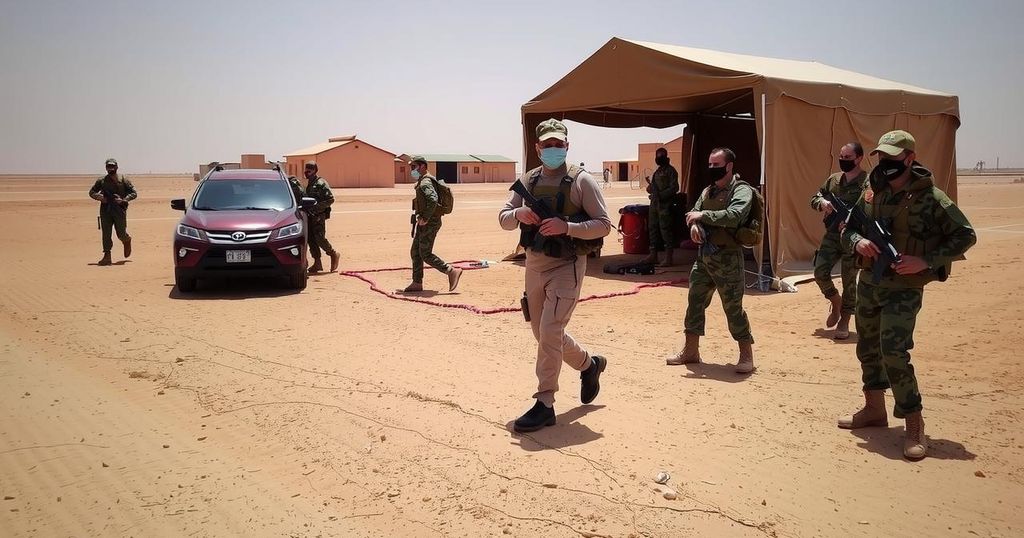RSF Reasserts Control Over Key Darfur Base Amid Escalating Conflict
Sudan’s RSF regained control of a vital base in North Darfur amid ongoing conflict with army allied forces. The clash resulted in substantial casualties and escalated ethnic tensions. Reports indicate significant civilian casualties in the region, as accusations of ethnic cleansing and violent assaults continue to surface, highlighting the dire humanitarian situation.
On Sunday, Sudan’s Rapid Support Forces (RSF) announced their recapture of a significant logistical base in North Darfur, following its temporary control by allied rival forces connected to Sudan’s army. The conflict, which intensified in April 2023, has seen brutal confrontations predominantly in North Darfur, where the RSF and the Joint Forces—comprising former rebel groups—are engaged in a struggle for territory. The Joint Forces claimed to have taken the Al-Zurug base on Saturday, which was essential for the RSF in supplying operations across borders with Chad and Libya.
Casualties were reportedly high during this conflict, with dozens of RSF soldiers killed and valuable resources taken. This shift in power may raise existing ethnic tensions between the RSF’s Arab tribal base and the Zaghawa tribe, which mostly constitutes the Joint Forces. The RSF has alleged that the Joint Forces committed acts of ethnic cleansing, accusing them of targeting civilians and destroying vital infrastructure, while the Joint Forces responded by asserting that the base had previously been used for attacks against civilians in areas like Al-Fashir, North Darfur’s capital.
A recent UN human rights report cites at least 782 civilian casualties in Al-Fashir since mid-April due to intense fighting, including artillery strikes and drone attacks. Activists noted a significant barrage of missiles targeting Al-Fashir on Sunday, indicating the ongoing violence in the region. Analysts suggest that if the RSF consolidates its hold over Al-Fashir, it could further its ambitions of establishing a parallel governance structure separate from the national administration in Port Sudan.
The ongoing conflict between the RSF and the Sudanese army began in April 2023, leading to a severe humanitarian crisis, particularly in the Darfur region. Historically, Darfur has been a site of ethnic tensions, exacerbated by the formation of various armed groups. The RSF, a paramilitary group originally established to combat rebellions, has been in battle against the national army and allied groups. The situation has resulted in significant violence, displacement of people, and a challenge to the stability of the region, drawing international concern and intervention efforts.
In conclusion, the RSF’s recent control over the Al-Zurug base constitutes a critical strategic advantage amidst an escalating conflict in North Darfur. The allegations of ethnic cleansing and the heavy civilian toll signal the devastating humanitarian implications of this prolonged violence. This contest for power not only affects local stability but also poses broader risks to regional security and governance. The international community continues to monitor the situation as efforts are made to resolve the conflict and protect civilian lives.
Original Source: www.arabnews.com




Post Comment